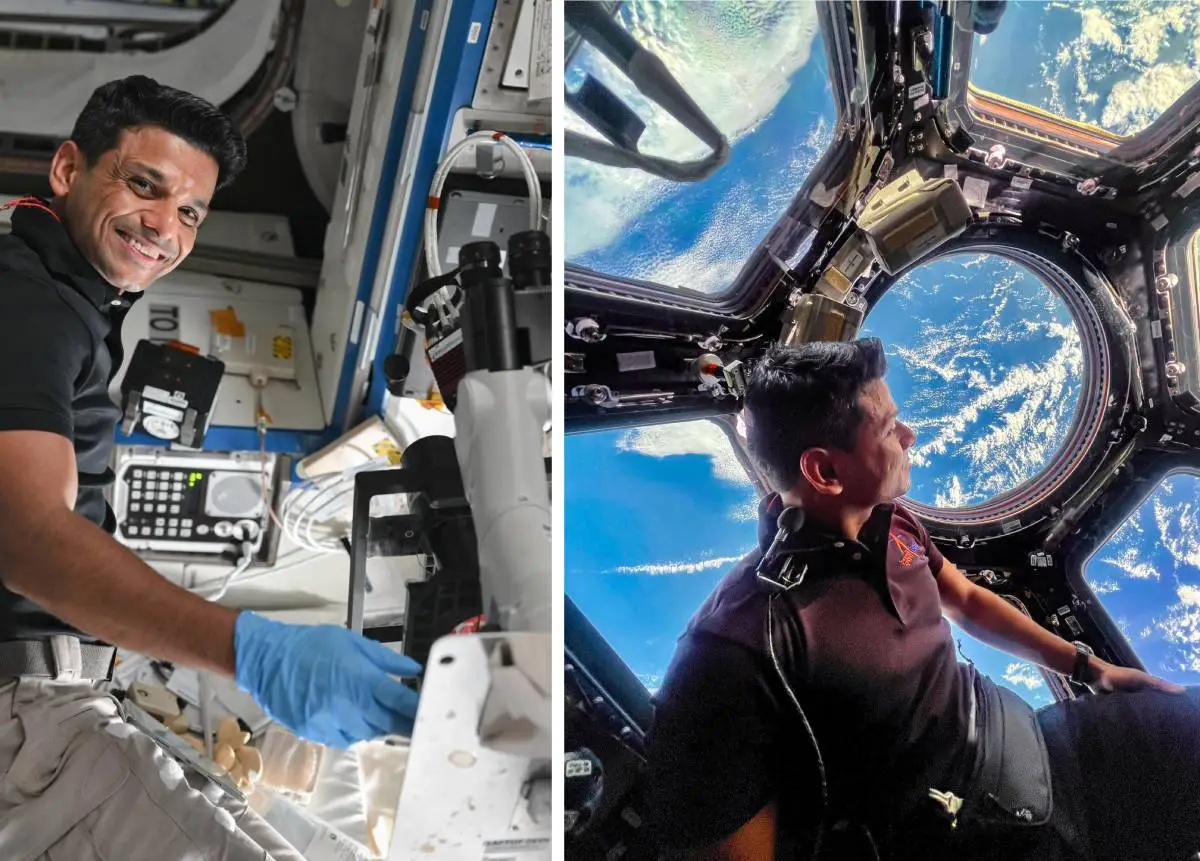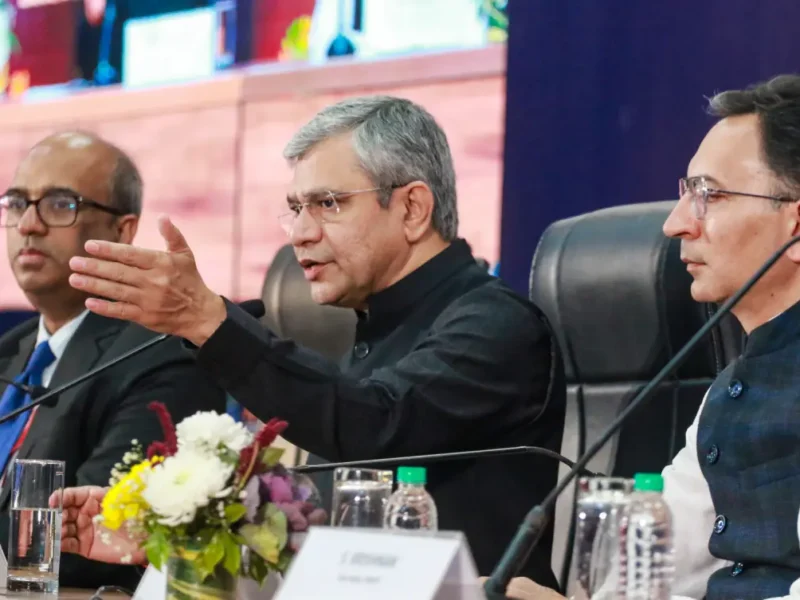
After Growing Moong And Methi In Space, Shubhanshu Shukla Headed Back To Earth
NEW DELHI (IANS)- Indian astronaut Shubhanshu Shukla is commencing his journey back to Earth July 14 from the International Space Station (ISS). Shukla’s presence on the ISS marks him as the first Indian to board the orbital laboratory and the nation’s second astronaut in space, following Wing Commander Rakesh Sharma. His current mission is part of the Axiom Space Mission 4.
During his time in orbit, Lucknow-born Group Captain Shukla has been engaged in a series of scientific investigations. These experiments were collaboratively developed by the Indian Space Research Organization, the Department of Biotechnology, and NASA.
A prominent study, named “Sprouting Salad Seeds in Space (SPROUTS),” focused on cultivating green gram and fenugreek seeds, staples in the Indian subcontinent. The objective is to meticulously analyze their growth patterns, nutritional value, hormonal and genetic responses, and microbial content within the space environment.
NASA underscores the critical importance of such research for future space exploration. Given the high cost and impracticality of ferrying substantial food supplies on extended missions, findings from the SPROUTS study could pioneer sustainable in-space food production. This breakthrough would empower astronauts to cultivate their own food, enhancing both nutrition and overall well-being during prolonged space travel.
“Plant-based food production systems can play a crucial role in achieving the long-term goals of human space exploration. The sprouted seeds can offer a highly nutritious alternative, providing more nutritional value per unit mass as compared to fully mature plants,” NASA articulated.
The US space agency further elaborated that “This investigation also lays the groundwork for future research to develop India-centric salad crops that help ensure an efficient and sustainable food source for long-term missions,” and “marks an important first step toward accommodating the unique dietary needs of Indian crew members.”
The research aims to decipher how space’s distinct environment influences germination rates, nutritional composition, and phytohormone dynamics during the sprouting process. “Insights from space-based sprouting also could inform advances in controlled environment agriculture, boosting the nutritional quality of food grown in challenging terrestrial conditions” on Earth, NASA added.
Shukla’s 14-day mission to the ISS included conducting seven India-specific experiments, contributing significantly to India’s ambitious Gaganyaan human space flight program. These investigations ranged from studies aimed at understanding muscle loss and developing a brain-computer interface to the aforementioned seed sprouting.
Beyond his scientific duties, Shukla connected with students from Kerala and Lucknow through video conferencing. These young minds engaged him with a flurry of questions about life in space, covering topics like astronaut diets, sleeping in microgravity, and responses to illness. They also inquired about the broader benefits of space programs and his most enjoyable mission moments.
Recounting his launch, Shukla described the Axiom Mission 4 experience as both “amazing” and “dynamic.” He offered a whimsical glimpse into life on the orbital outpost to the students, explaining, “It is fun actually, because in space there is no floor and no ceiling. So, if you were to come and visit the station, you would find someone sleeping on the walls, someone on the ceiling.”



